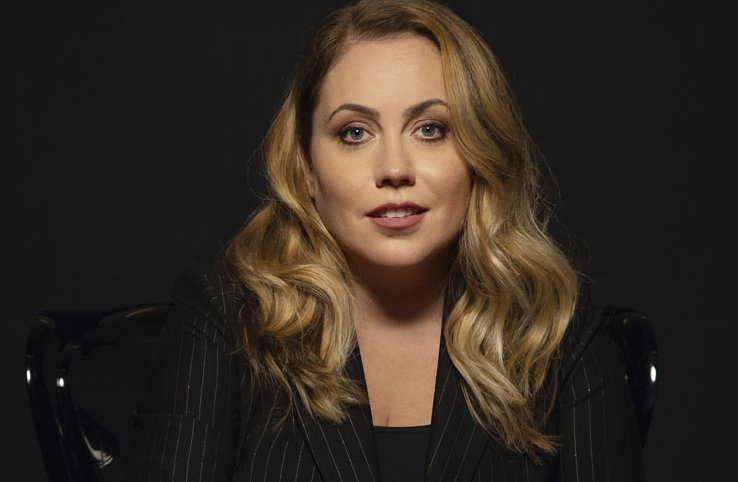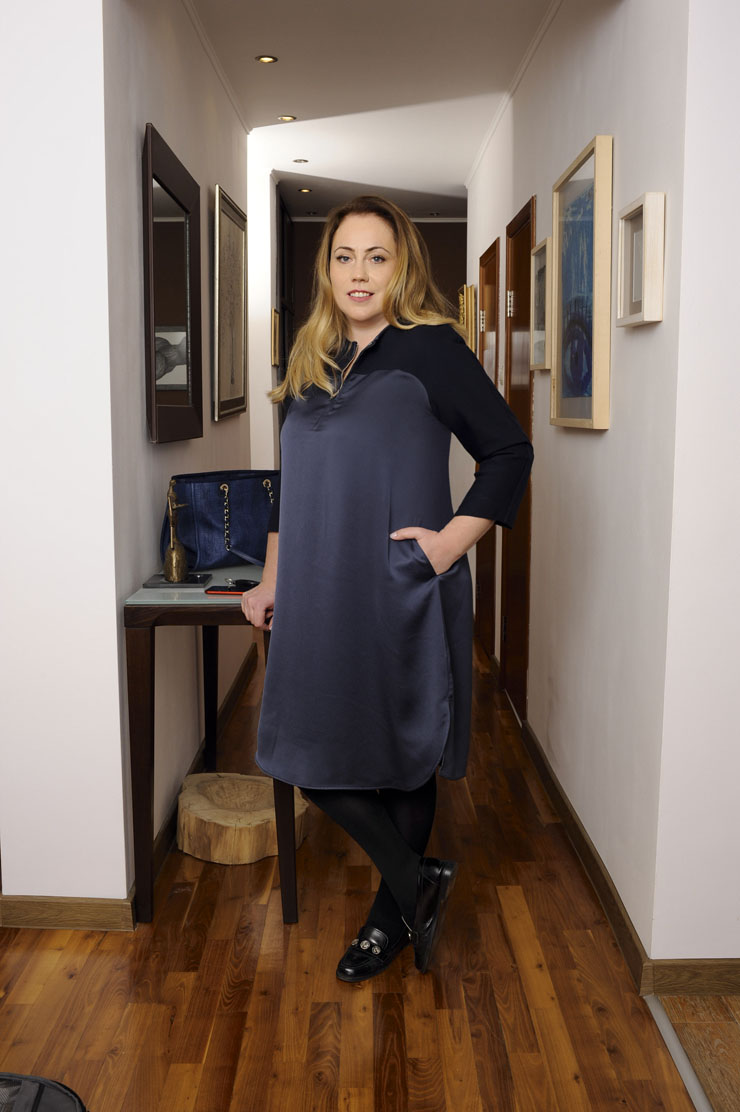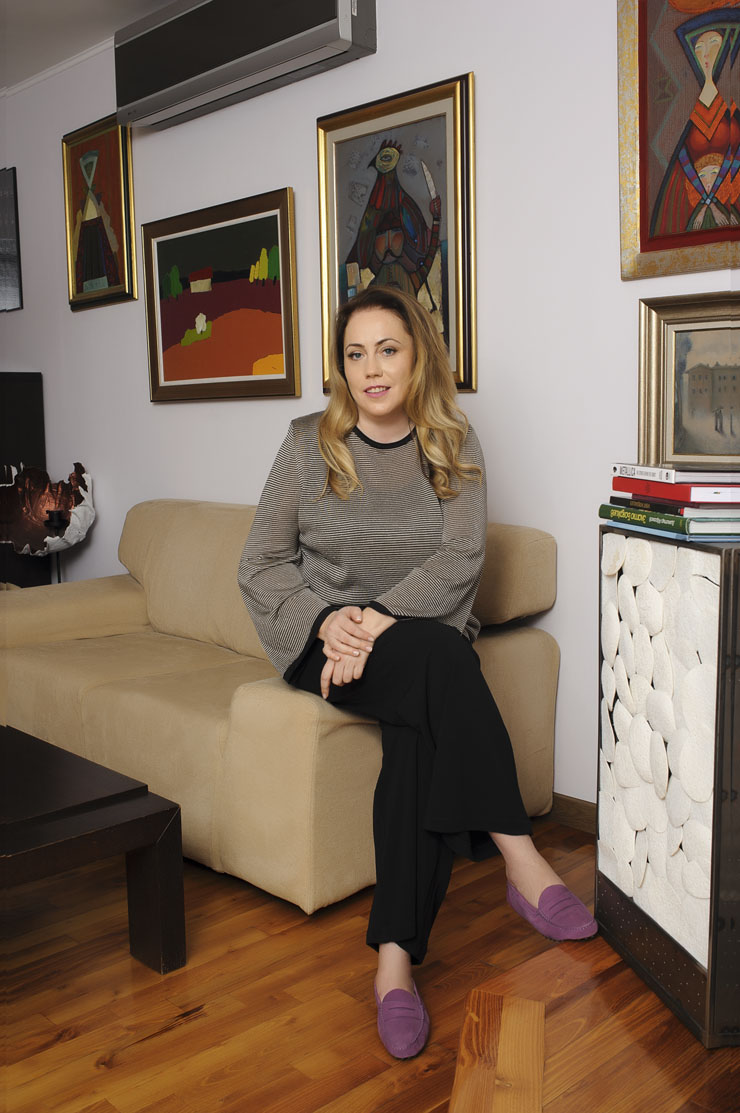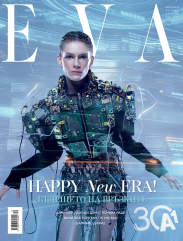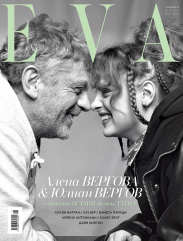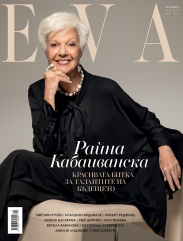Neli Angelova: You develop a team as if it is your own child
Adriana Popova, Elka Vlahovska 01 January 2021
Еven if you meet Nelly Angelova, Nestlé's communications manager, for the first time, it will only take you minutes to realize that this is a person who won’t waste your time. You will feel her focus, lack of snobbery, speed and haste. And if she invites you to her home, you will find out that in front of you is a woman with curiosity about the world, with interest of art. A woman pouring cherry-scented tea into exquisite cups on the kitchen island in her apartment.
She does not parade, for her the luxury is not in the imposed foreign standards, but in the opportunity to work what she really loves and to enjoy the pleasure of establishing teams of talented professionals. She gets great level of fulfillment while choosing the paintings from her favorite galleries "Rakursi", " Nuance ” and UPARK in Plovdiv, a place preserving the spirit of Kolyo Karamfilov. She loves to travel the world with open eyes and a curious palate. Nelly Angelova seems to be a person with a clear sense of what is good and what is right, a sense shaped perhaps by a precise university degree. Having started her career in analog times, Nelly seamlessly switched to the new online reality while working in a multinational private company. Her path as a professional and a woman is a story that many will recognize - because of her optimism.
Mrs. Angelova, you have a master's degree in engineering. What career did you dream of while studying?
My university education took place from 1993 to 1999, and it directly influenced the concept of my career dreams. This was a very transitional period. Engineering education was still very prestigious, university admissions were quite challenging, privatization was beginning, and many foreign companies were entering the country with their "Western management teams." One of the difficulties was the language barrier, there was no level of knowledge of Western languages, which is now just a norm. On a daily basis I met the "new" - the incoming brands in the country, the quality requirements in all its forms and the big new thing called "marketing". I had it in my curriculum (I graduated from the Faculty of Economics at the Technical University in Sofia), but I didn't really know what it was. However, I felt that "marketing" was something exciting, and I wanted to work with it, to understand it. The Technical University is a great school! I can say that I found the perfect place to develop my discipline and my desire not to give up.
Do you remember when was your first intercourse with the Nestlé brand?
My first conscious meeting with Nestle was at a large meeting in the production workshop of boutique chocolates from the "premium" segment, which was located in the center of Sofia. We were told that a very large Swiss company had privatized SZI Sofia, "our factory". I was 18 at the time, but along with the people who had spent their entire work experience - 20, 30, 40 years in this place, I also did not understand the meaning of the word "privatization" and the subsequent restitution. And so it all began. Otherwise, I knew Nescafe Classic and Galak chocolate, which I had seen at Corecom, but I had not associated them with Nestle until now.
My first conscious meeting with Nestle was at a large meeting in the then workshop for the production of boutique chocolates (exclusively handmade by fakir workers) and the "premium" segment, which was located in the center of Sofia. We were told that a very large Swiss company had privatized SZI Sofia, "our plant". I was 18 at the time, but along with the people who had spent their entire work experience - 20, 30, 40 years - in this place, I also did not understand the meaning of the word "privatization" and the subsequent restitution. chocolate production). And so it all began. Otherwise, I knew Nescafe Classic and Galak chocolate, which I had seen at Corecom, but I had not associated them with Nestle until now.
You have been in this company for almost 30 years. How did you succeed in this promiscuous time, when especially young people leave works so easily after a problem occurs? How do we know if a job is for us?
It’s a million-dollar question. I'm not that type of person who believes in the idea of being in the right place at the right time. I believe that quite often we are in the right place at the right time, but for a number of reasons we cannot take our chance. Because we are distracted, because we do not have enough strength, because it is simply not our day. My recipe is: know yourself, know what you want, respect the people around you and take seriously the feedback and the small signals. Phrases like "it's not my job" and "I'm at work until 6" are not connected with the idea of success. I believe that young people today are no different from the young people of previous generations in their quest to achieve their ambitions and dreams. Yes, today's young people have a lot of information, a lot more opportunities and this gives them more confidence to think that success is on the next street, in the next office. Looking for different options is part of building their life and professional experience. The question is how often they change jobs, what they achieve in the current one before finding a new career opportunity, how they have upgraded themselves (new skills, knowledge, etc.) or what is their own level of impatience management.
What is your most satisfying success?
The people on my team are the real measure of my success. In the beginning, these were people with no experience or no initial professional experience. Talented coming to the professional world practically right after the student bench, but eager to work and climb peaks. Now they are all in responsible management positions at Nestle or other companies, in Bulgaria or abroad. Some of them have successful personal business ventures. It is like raising a child, a child that you already see as a successful and responsible person. It is a great pleasure to be able to pass on what you know to another person. That's why I always have time and energy to work with people, my door is always open.
How and with whom do you celebrate your success?
Whether I make my special tiramisu or any other cake and eat it with my team, whether we organize a “banitsa morning”, or go out for a special dinner – there are moments to celebrate. My Nestle’s team is in offices in Sofia, Bucharest, Belgrade and Zagreb, and now with the whole Covid-19 situation, these "celebrations" require a different approach, but if there is a desire, there is always a way. People appreciate the gesture itself, the recognition, and that's what's important.
What is the biggest challenge for women in business? Have you ever felt the so-called glass ceiling?
There is a lot to talk about this glass ceiling, but I think our country is a good example for many others when it comes to the possibility of good realization of women. Regardless of the field, public or private sector, we see ladies on top positions. Тhere is a historical justification for this, but the main thing is that the Bulgarian woman has always been super multifunctional. And this accumulation over the years, even centuries, leads to the success of the local women. I personally have never had the feeling of gender inequality in professional terms. I think the real challenge for modern women is how to be really good at their multifunctionality. We add new territories in our lives, we are partners, wives, mothers, and the career goes in parallel. We add, but we don't remove, in the general case. We want to be perfect and nothing less. And here is the question how? The basics of being a successful multitasker are inner peace and balance. Be aware of what you want exactly, prioritize things that can change, and be satisfied with what you achieve.
Bulgaria seems to be a good example of the percentage of women on leadership positions.
I work in a company where almost 60% of the management positions are held by women and this is not a percentage that the company has decided to obtain. This is a result of the ladies’ abilities and their desire to work, to prove themselves, to succeed, to leave a mark. We also saw the outcome of the US election and how a girl, a daughter of immigrants, will now be at hand away from the Oval Office. All this inspires confidence that this glass ceiling is cracking.
How do you manage to motivate the people around you? Umberto Eco admits that he wasn’t the one giving many praises to others. What is your style in this regard?
Ha, I recognize myself in Umberto Eco and that I am quite frugal in praise. Especially in my early years as a manager, I showed recognition only with real actions on my part. But times are changing. It is very important for today's young people to be praised for their contribution verbally. But for me, actions remain the most important form of recognition. My people know that they work in a calm environment, they know that they don't have to worry if there is a delay, absence for any reason or work from home (during the Covid-19 period). That they will be honestly appreciated, that the feedback is sincere and aims at only one thing - the good development of each of them.
Who is your role model?
Those who challenge the status quo and take the path of change. For me, this shows the scale of human intellect and the strength of will. It is not easy to withstand all difficulties and challenges, and in today's world of social media - all the "benefactors" who give you their opinions. What would happen without all those who opposed the status quo? The ladies would still be panting from the tight corset without having the right to vote.
Henri Nestlé creates a corporate culture with zero compromises on quality, and with the application of science and respect for regional specificities. What regional features do we have in Bulgaria?
Henri Nestlé was one of the people who opposed the status quo, such as the high infant mortality rate in his days, and created a formula that helped many mothers without breast milk to feed their babies. As for the peculiarities of the region - in our country and in our neighboring countries, for example, a lot is cooked at home, and from scratch. This strongly influences the entire business aspect of the sector - from product creation, through the sales part in the business model, its promotion and overall communication.







